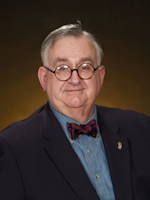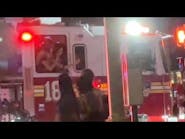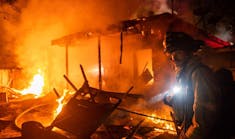It has been my experience that developing productive organizational members is a task that many leaders are unable to accomplish. For one reason or another, they are so thoroughly taken with the glory of themselves that they have nothing left to share with their people.
In a recent International Society of Fire Service Instructors (ISFSI) newsletter, Executive Director Leigh Hubbard addresses this, speaking to the fact that many leaders spend great a deal of time talking and not so much time listening. Her advice is simple and to the point: “… talk less: listen more.” Herein lies the key to my visit with you today.
Let me suggest to you that the truly wise leader must be able to develop a sense of when to talk and when to listen. Trust me when I say that this is not an easy task. Truth be told, many among us would rather talk than listen. If you think about it, talking is actually easier than listening. It is all internal to you. You feel it, think it and then say it.
Listening necessarily involves an external element—the person who is speaking to you. You must recognize that someone is talking to you and then develop an understanding of the content of their message to you. You must ponder their message and search for an appropriate response. It is then incumbent upon you to provide an appropriate response, providing feedback at the level of understanding that you have regarding their message.
NFL-level advice
The genesis for this article came not long after the National Football League (NFL) draft in April 2018. More specifically, it came from an article written by Jarrett Bell in the April 27–29, 2018, edition of USA Today Weekend. The article involved several examples of advice being provided to the newly drafted NFL players by Hall of Fame veterans of many years’ service in the NFL.
The context of the article was quite simple indeed: People who have been there, walked the walk and succeeded offered advice to the people who are just entering the new arena of professional football. For example, Hall of Fame receiver Michael Irvin said, “The best piece of advice I can give any one of these young men at this level? You can’t win by yourself, buddy.”
That makes great sense to me. Football is a team sport. Many of the lessons I learned about teamwork during my life have come from the time I spent on sports teams. I participated on football, wrestling, and track and field teams in my day. In no case did what I accomplish, in and of itself, lead to my team winning.
However, the successful completion of my designated role in any given game contributed to our overall success. I speak with authority here having played on championship football and track and field teams. My associates and I combined our efforts in pursuit of the common goals of our teams.
One of my favorite coaches of all time, Bill Parcells, said that these new NFL players were no longer simply in a recreational pursuit: “They are in a place that represents their livelihood. Just like any employee, you need to find out what the people in charge want, and you need to do it to the best of your ability. Be punctual. Reliable. Accountable. Pay attention. Do your best work in practice. And give your best effort.”
Steve Smith from the Carolina Panthers gave one of the best gems of advice: “When I got to Carolina, the first thing I heard from a vet who I respect: Rookies are meant to be seen and not heard.” Sage advice. The new member of the team must find their place and their role. Then they must work to do it as best as they can.
How many of you have welcomed rookies into your fire department, rookies who came through the front door with the “I’ve seen it all and I know it all” attitude? And if they did not have it initially, they sure as heck had it by the time they graduated from their Firefighter I training academy. This is one of the great problems facing the entire fire service. How do we handle the “We-Know-It-All Warriors” aka the “20-Minute Wonders”?
Tips for advice-giving
Let me suggest that it is up to the leaders of the organization to set the tone for the troops. Provide them with wisdom, support and guidance. Also provide them with an appreciation for the role of rules, regulations, policies and procedures in the operations of your fire department. Ignoring this sets the stage for future failures.
I think the same is true in any field of endeavor. Because my specialty is the fire service, I shall craft my words for that arena. Let me lay out some gems of advice that I think will help you, as leaders, provide the support and direction necessary for your agency to succeed in its role of providing support and protection to your community:
· Know where you are supposed to be
· Know what you are supposed to do
· Do your job
· Be on time
· Know your job
· Hang out with the right people (you will know who is who right away)
· Wear the right uniform
· Make sure the uniform is clean and your shoes shined (if that is required)
· Listen when people talk to you
· Do not think about your response until the other person is done speaking
· Know what is expected of you and then do it
· Never be afraid to ask questions
· Ask the right questions (you will learn how to do this, even though you might get a few bruises during the learning process)
· The dumbest question is the one that was never asked that leads to you getting into trouble or hurting yourself or one of your teammates
· Give respect to the other members of your department
· Do not lie, cheat or steal
· Do not be a dumbass
It is my hope that the list that I have developed for your consideration helps you to think about the manner in which you need to share your view of how to be a fire department member. It is also my hope that it serves as a starting point for you to use in developing your manner of helping people become productive members of your organization. I am offering advice. I want you to consider using it to help people become an effective part of your organizational team.
Let me suggest that you copy my thoughts and carry them on a printed card in your wallet. I am sure that there are many more tidbits of advice that you can use to motivate your people. I hope that you will be one of the “advice-givers” in your department. Take care, my friends, and above all, stay safe.

Dr. Harry Carter
HARRY R. CARTER, Ph.D., who is a Firehouse contributing editor, is a fire protection consultant based in Adelphia, NJ. He is chairman of the Board of Commissioners in Howell Township Fire District 2 and retired from the Newark, NJ, Fire Department as a battalion commander. Carter has been a member of the Adelphia Fire Company since 1971, serving as chief in 1991. He is a life member and past president of the International Society of Fire Service Instructors and life member of the NFPA. He is the immediate past president of the U.S. branch of the Institution of Fire Engineers (IFE) of Great Britain. Carter holds a Ph.D. in organization and management from Capella University in Minneapolis, MN.
Connect with Harry:
Email: [email protected]






